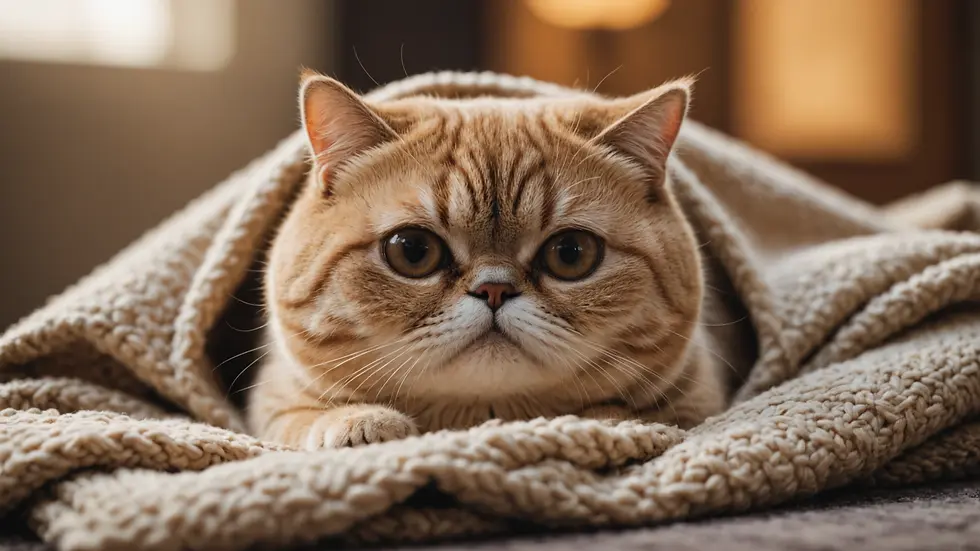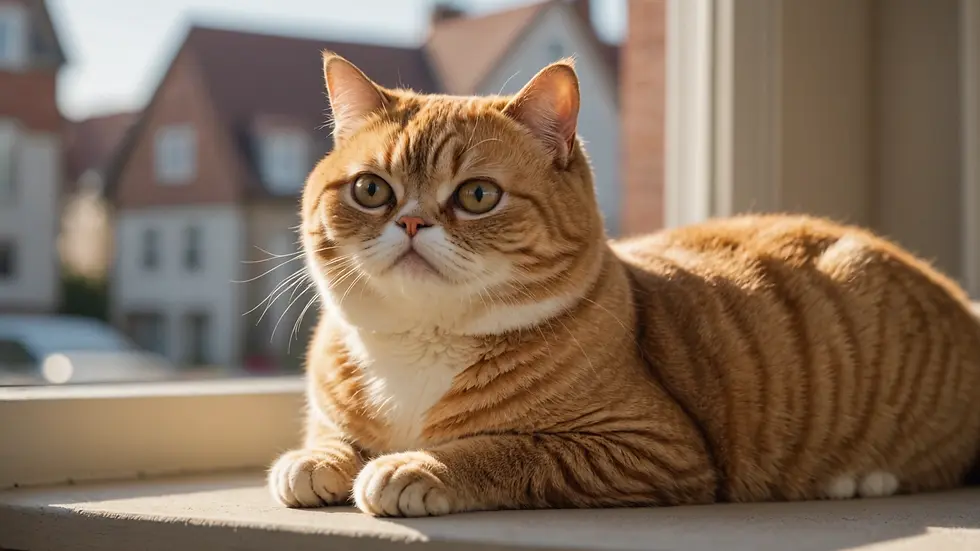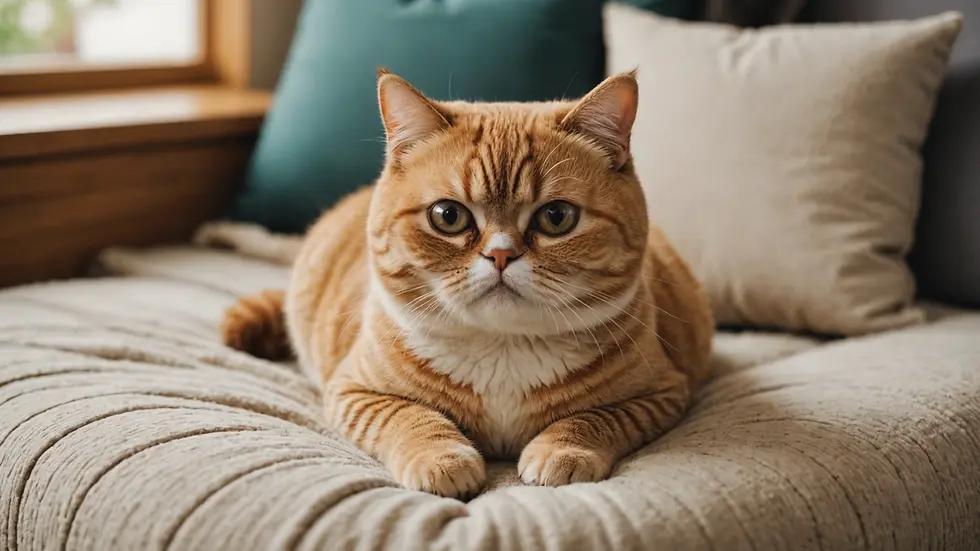What are the common health issues faced by Exotic Shorthair cats?
- Jyotiraj Borah
- Feb 10
- 4 min read
Exotic Shorthair cats charm us with their round faces and affectionate personalities. Their fluffy coats are easier to maintain than those of their Persian counterparts, making them a popular choice. However, this breed does come with distinct health challenges that every potential owner should know about. By understanding these common issues, you can ensure a healthy and happy life for your beloved pet.
Genetic Predispositions
Exotic Shorthairs carry specific genetic traits that can contribute to health issues. Most notably, their short, flat faces can lead to respiratory complications, eye problems, and other health concerns. It's crucial for prospective owners to select a cat from a responsible breeder focused on minimizing genetic health risks. Research shows that reputable breeders can reduce the likelihood of severe health issues by up to 30 percent, giving your cat a better chance at a healthy life.
Respiratory Issues
One major health concern for Exotic Shorthairs is respiratory problems. Their brachycephalic structure often leads to breathing difficulties. Many owners report symptoms like snoring and unusual breathing sounds. It's essential to keep your cat in comfortable environments free from temperature extremes and allergens. For instance, studies indicate that 75% of brachycephalic cats experience some form of respiratory challenge. Regular vet check-ups are essential to monitor and manage these issues effectively. Keeping your cat at a healthy weight—ideally, between 8 to 12 pounds—can lessen breathing problems significantly.

Eye Problems
Exotic Shorthairs are also prone to eye-related health issues, primarily due to their facial structure. Conditions such as dry eye, conjunctivitis, and corneal ulcers are more common in these cats. Research suggests that nearly 40% of Exotic Shorthairs may suffer from eye problems at some point in their lives. Signs like excessive tearing or squinting warrant immediate veterinary attention. Routine eye check-ups, along with grooming to clear away debris, can greatly help in maintaining healthy eyes.
Dental Issues
Dental health remains another critical concern for the Exotic Shorthair breed. Periodontal disease can be a significant issue, potentially affecting up to 60% of cats over three years old. Poor dental hygiene manifests as bad breath, swollen gums, or tooth loss. Establishing a dental care routine, including brushing your cat's teeth several times a week, can cut the risk of dental diseases dramatically. Additionally, consider dental treats and professional cleanings to keep your cat's mouth healthy.
Obesity
Obesity is an escalating problem in cats, including Exotic Shorthairs. Given their relaxed demeanor, it's easy to overindulge them. However, studies reveal that overweight pets are at risk for serious health issues like diabetes and heart disease. Implementing a balanced diet tailored to your cat's age and activity level can help prevent obesity. Also, aim for at least 20 minutes of interactive play daily to keep them active, as cats that exercise regularly have a 30% lower chance of becoming obese.

Kidney Disease
Kidney disease commonly affects cats, particularly as they age, and the Exotic Shorthair is no exception. Chronic kidney disease (CKD) develops gradually and may not show symptoms until it is advanced. An estimated 50% of older cats suffer from CKD. Early signs include increased thirst, frequent urination, and weight loss. Regular blood tests help detect early signs, making it possible to manage the condition effectively. Providing a high-quality diet and ensuring adequate hydration is essential for supporting kidney function.
Heart Disease
Cardiomyopathy is a serious concern for Exotic Shorthairs. This heart condition can lead to heart failure in extreme cases. Although any cat can be affected, certain breeds, including Exotic Shorthairs, are more vulnerable. Symptoms might include lethargy and difficulty breathing. Regular veterinary check-ups are vital for monitoring heart health. If cardiomyopathy is suspected, diagnostics such as ultrasound can be essential. Maintaining a stress-free environment helps support heart health too.
Skin Issues
Exotic Shorthairs can face various skin issues, often stemming from their thick coats. Problems include matting, which may lead to infections. Regular grooming is crucial to prevent matting and maintain skin health. Use appropriate grooming tools and be watchful for signs of irritation or redness. If your cat scratches excessively or shows any signs of discomfort, consult your veterinarian for possible allergies or infections.
Regular Health Check-Ups
Consistent veterinary visits are crucial for any cat but especially for Exotic Shorthairs, who have unique health concerns. During these visits, a vet will review your cat's overall health, recommend vaccinations, and make any necessary dietary adjustments. Catching issues early can help extend your cat's life. Studies show that regular vet visits can reduce the risk of serious health issues by nearly 20%, providing peace of mind for owners.

In Summary
Exotic Shorthairs offer companionship and joy, but they come with unique health considerations. From genetic predispositions to respiratory and dental issues, proactive care is essential for their well-being. Regular vet appointments, a nutritious diet, and a commitment to play and exercise can help your Exotic Shorthair thrive. By being informed and attentive, you can foster a rewarding relationship with your furry friend.




Comments